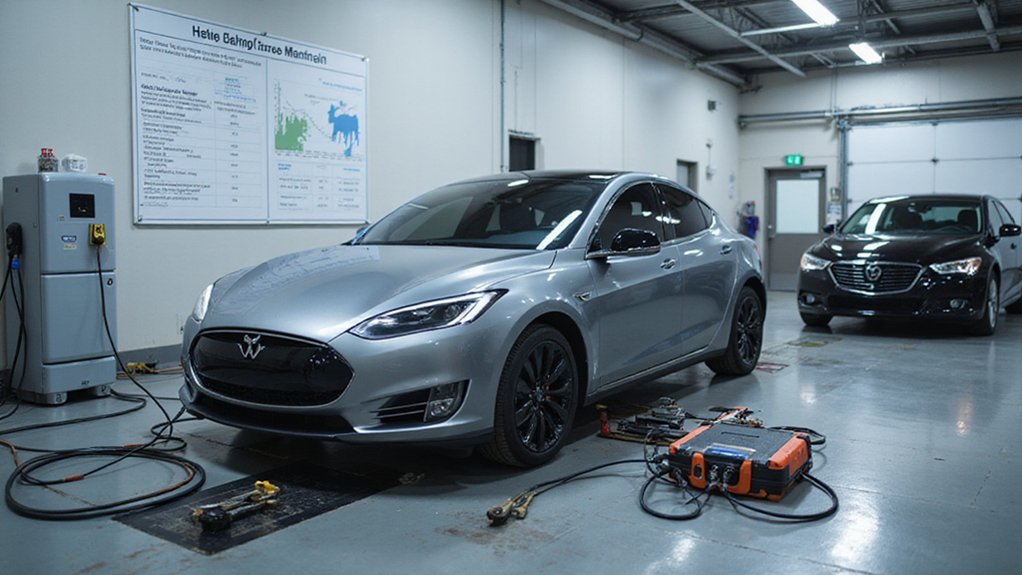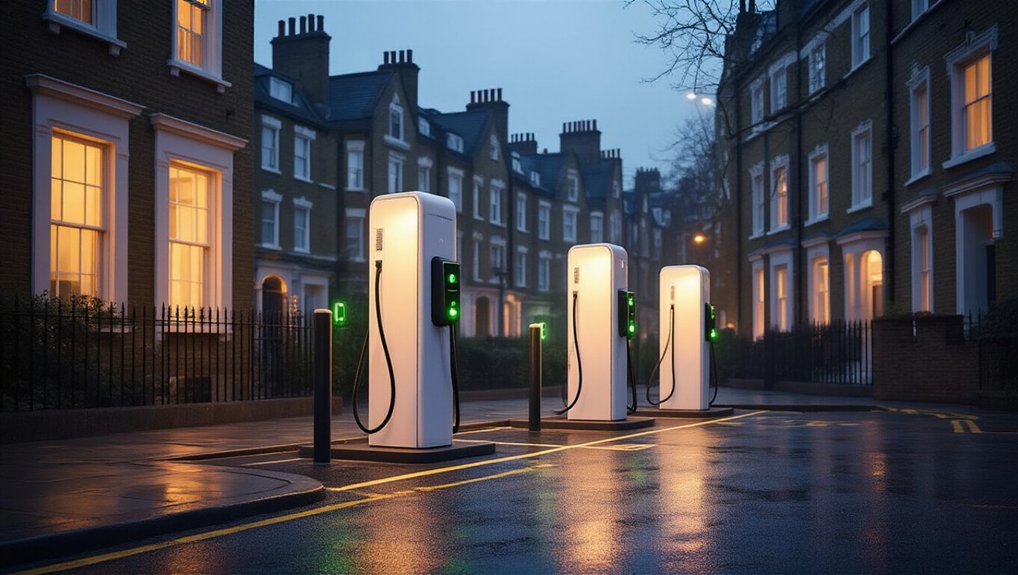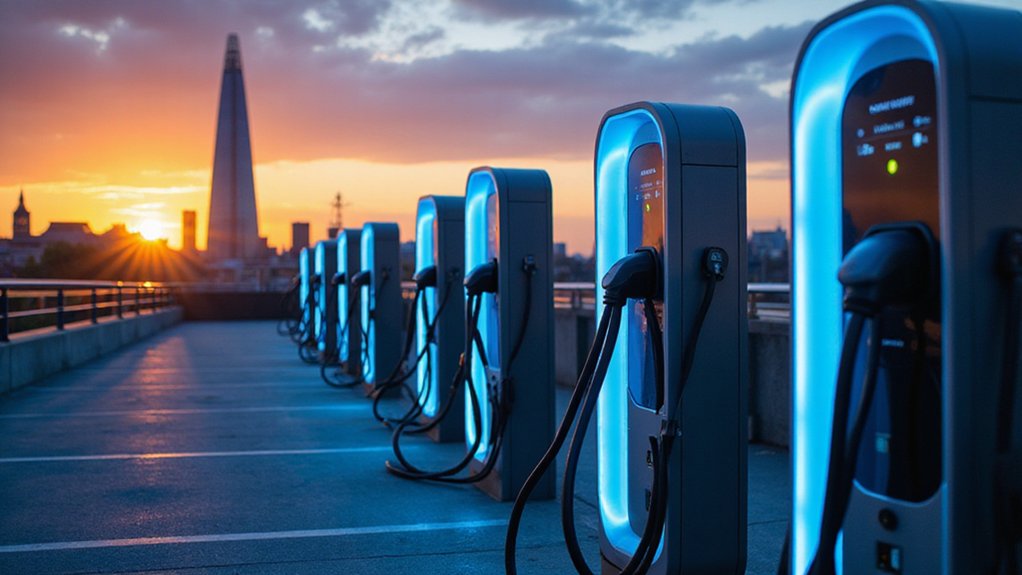Recent studies confirm electric vehicles have fewer breakdowns than gas cars. German research shows EVs average 4.2 breakdowns per 1,000 vehicles, less than half the rate of gas-powered alternatives. This reliability advantage stems from EVs’ simpler mechanics with fewer moving parts. While 12V batteries remain the top failure point for both vehicle types, EVs experience fewer issues overall. The latest models demonstrate even stronger reliability as technology continues to mature.
While conventional wisdom has long held that gas cars are more reliable than their electric counterparts, recent data from multiple studies now tells a different story. The German Automobile Club’s 2024 study of 3.6 million breakdowns found electric vehicles average just 4.2 breakdowns per 1,000 vehicles, less than half the rate of combustion models.
This extensive data finally gives experts enough information to make confident claims about EV reliability. EVs accounted for only 1.2% of all breakdowns analyzed, despite their growing market share. Each new year of research has strengthened the case for electric vehicle dependability.
The reliability advantage comes largely from EVs’ simpler mechanics. With fewer moving parts in their powertrains, EVs avoid many common problems that plague gas cars, like timing belt failures and fuel system issues. This simplicity translates to fewer repair needs and lower maintenance costs for owners. As Europe’s largest roadside assistance organization, ADAC’s findings carry significant weight in the automotive industry.
EVs aren’t perfect, though. They experience more tire problems due to their heavier weight and instant torque. The 12V battery remains the top failure point for both vehicle types. In fact, 50.5% of EV breakdowns were attributed to issues with the 12V starter battery. However, in almost every other reliability category, electric vehicles now outperform gas cars.
Consumer Reports surveys show the reliability gap is closing rapidly. Three years ago, new EVs had 79% more problems than gas-only vehicles. Today, that difference has shrunk to 42%. This improvement comes from better batteries, improved software, and manufacturers gaining experience.
Customer satisfaction reflects these reliability gains. Owners of top EVs like the Tesla Model Y, Hyundai Ioniq 6, and Polestar 2 report high confidence in their vehicles and fewer unexpected repairs. Many cite the simpler maintenance routines as a major benefit. The rising popularity of electric vehicles also contributes to economic growth, with the solar power sector alone creating 4.9 million jobs globally.
The newest electric models entering the market in 2024-2025 show the lowest breakdown rates yet. This trend suggests that as EV technology continues to mature, their reliability advantage over traditional gas vehicles will likely grow even stronger.
References
- https://cleantechnica.com/2025/05/04/electric-cars-are-more-reliable-than-gas-cars-new-study/
- https://thedriven.io/2025/04/14/evs-more-reliable-than-ice-vehicles-with-the-best-and-worst-electric-cars-identified/
- https://www.carscoops.com/2025/04/new-study-shows-evs-are-more-reliable-than-ice-cars/
- https://electricvehicleforums.com/how-tos/slideshows/7-evs-with-the-highest-customer-satisfaction-ratings-in-2025-990832
- https://www.consumerreports.org/cars/car-reliability-owner-satisfaction/electric-vehicles-are-less-reliable-than-conventional-cars-a1047214174/









